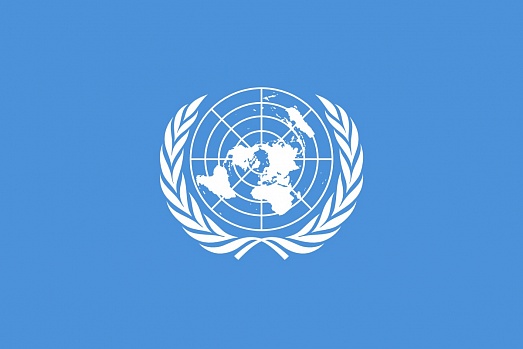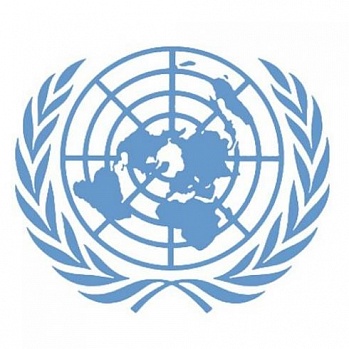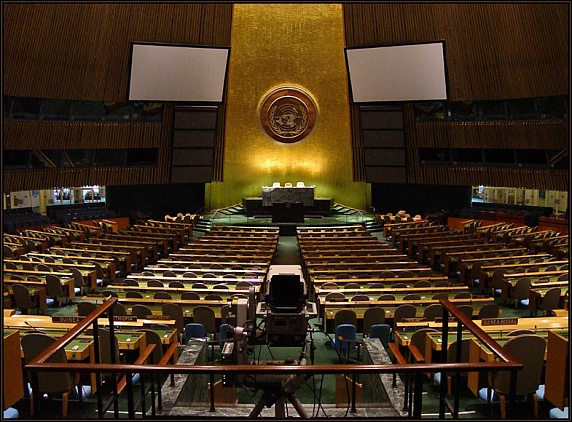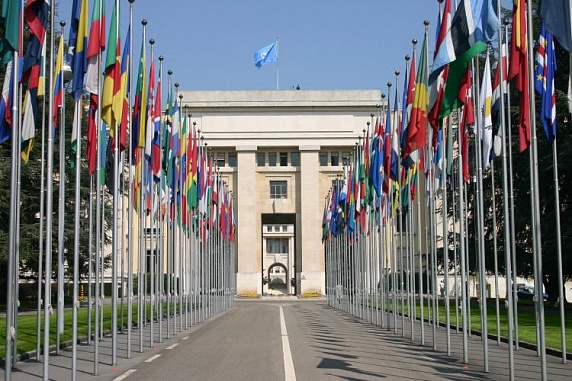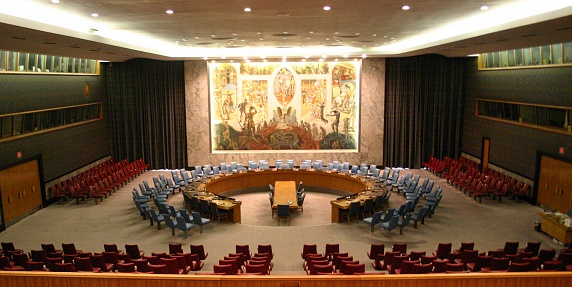 Die UNO
Die UNO
Remarks by Director of the Foreign Ministry’s Department for Humanitarian Cooperation and Human Rights Rinat Alyautdinov at the adoption of the Resolution of the Third Committee at the 74th Session of the UN General Assembly Combating glorification of Nazism, neo-Nazism and other practices that contribute to fuelling contemporary forms of racism, racial discrimination, xenophobia and related intolerance (A/C.3/74/L.62), New York, November 7, 2019
Mr Chair,
Regrettably, the issue of combatting the glorification of Nazism, neo-Nazism and other practices contributing to fuelling contemporary forms of racism remains relevant to this day.
Very soon humankind will mark a momentous date: the 75th anniversary of the Victory over Nazism, which can be rightfully called the common historical heritage of the UN member states. Even though the verdict of the Nuremberg Tribunal gave the final answer as to who represented the Forces of the Good and the Forces of Evil in WWII, there are still those who are eager to question those great gains. However, nobody can refute the fact that it was a victory over the ideology of racial supremacy and hatred. It is the Victory that we are not only entitled to but also obliged to take pride in. This is the shared heritage of the international community.
The contemporary system of encouraging and protecting human rights was shaped thanks to the Victory in World War II. Such basic documents as the Universal Declaration of Human Rights, international pacts on human rights, and of course, the International Convention on the Elimination of All Forms of Racial Discrimination, were a response by the United Nations to the Nazi crimes, to the policy of total disregard for human dignity. This Victory created conditions for decolonisation thank to which the United Nations has become a truly universal organisation.
Despite these obvious facts, attempts are persisting today to deny, review or outright falsify our common history. And these are far from harmless academic exploits. They show an ambition to pave the way to the revision of the foundations of the modern world order and the erosion of the principles of international law and security established following the results of World War II.
We underscore that the presented draft resolution refers to current human rights issues. Thus, against the backdrop of the global migration crisis caused primarily by the irresponsible policy of interference in domestic affairs of sovereign nations, racist and xenophobic rhetoric is gaining ground as well as calls to rid of immigrants and “alien elements.” Respective statements are spread under the guise of “freedom of expression” slogans.
The war on memorials to those who fought against Nazism and fascism declared by some countries causes deep concern and indignation. Recently, it has acquired features of a state policy propped up by respective legislation. Marches glorifying the Nazis and their accomplices are held every year, as are torch marches of neo-Nazis and nationalists that are vividly reminiscent of similar gatherings in Hitler’s Germany. Desecration of the memory of those who fought against Nazism continues, among other things, by unveiling memorials to those who fought on the Nazi side or collaborated with them. The same is true of renaming streets, squares, schools and other social facilities in honour of Nazi collaborators.
Mr Chair,
Glorification of those implicated in Nazi crimes is absolutely unacceptable, including whitewashing former SS members as well as Waffen-SS units which were recognised as criminal by the Nuremberg Tribunal. We condemn any attempt to present those who fought against the anti-Hitler coalition or collaborated with the Nazis as national heroes or national liberation movements’ heroes. It is sad that often such things happen in the countries which were occupied by the Nazis during World War II and where their heroic peoples made a hefty contribution to the destruction of Nazism.
Such attempts to fuel contemporary forms of racism, xenophobia and related intolerance cause deep concern. Moreover, they are punishable by criminal law under Article 4 of the International Convention on the Elimination of All Forms of Racial Discrimination. We are confident that such acts are incompatible with the countries’ obligations under the UN Charter.
Mr Chair,
Almost 75 years ago our fathers and grandfathers managed to rise above the contradictions dividing them, ideological and political disagreements, so as to jointly stand up to a common evil, a common challenge to the whole of humankind, and to rid future generations from the calamities of war. To approve this document is our duty not only to those who established the UN, but also to future generations. In this connection we call on everyone who shares these aspirations to vote in favour of the submitted draft resolution.
Thank you.
